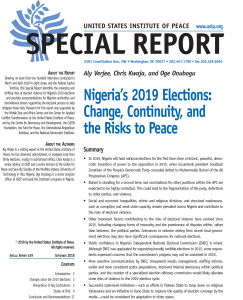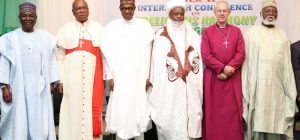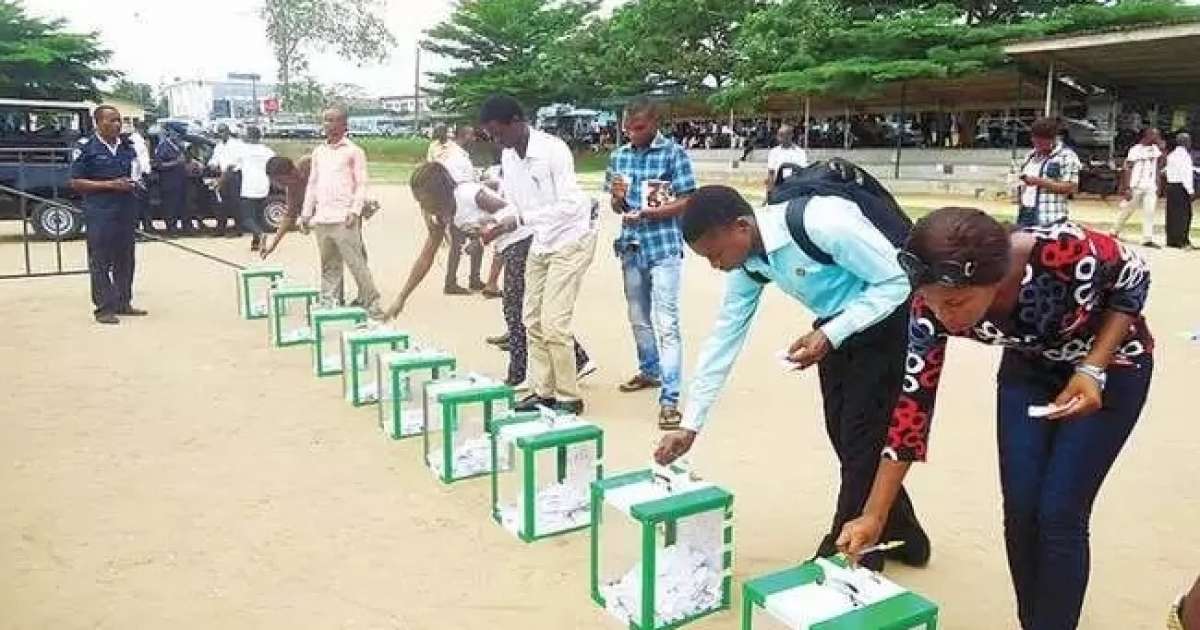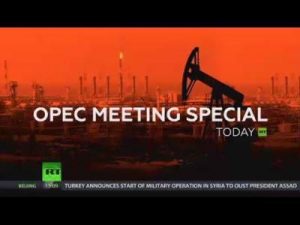As in 2015, so also it is in 2018/9. There is fear that there would be violence in 2019. It is not a mindless fear. After all, there was violence in 2011 and Nigerians have not forgotten images of similar election related upheavals from other African countries. Some think tanks have also been drawing attention to such possibility just as the local media is awash with the fear of large scale violence. But is violence inevitable in 2019? Is it possible to say yes or no at this point whether there will be violence or not? If violence occurs, where would it be coming from and how?

An ugly scene from the past
Here is an attempt to answer some of these questions. The position canvassed here is that there is nothing inevitable about violence in 2019, that violence in 2019 is what Nigerians make of it and that the danger is rather in those who are writing 2019 as violence. That is those who are specializing in constructing 2019 in the image of violence because they are, consciously or otherwise, preparing the ground for that reality.
The starting point is that the 2019 (presidential) election does not have one meaning for every Nigerian. While most members of the All Progressives Congress, (APC) as well as those of the opposition People’s Democratic Party, (PDP) would see it as a matter of victory or defeat, there are those who see it in terms of the opportunities for contract jobs with INEC, the security agencies and the parties. That is, as an opportunity to make money. There are specialized groups such as the media who would be seeing it as a great opportunity to get more advertisements so as to remain in business. For INEC, the key issue in the election might be no more than how to build on the overarching image it got from the conduct of the 2015 elections. This is not to talk of the huge difference in what each of the geo-cultural entities down to certain individuals must be expecting from the election.
What this means is that there is no core meaning to 2019. It has no central meaning for everyone. Everyone who speaks on the election sees it from where he or she or they stand. That is a critical source of violence in that each stakeholder is bound to try to find ways and means of ensuring that he/they are the winner at the end of the day.
However, the other side of the fact that the election has no one meaning for everyone is equally a crucial reason why peace will prevail. That logic comes from the point that it is not everyone who has interests to defend that privileges violence.

The reality of those prepared to kill is the risk USIP, for instance, uncovered in its research
That leaves us with those who are prepared or have been prepared to kill or die in defence of the victory of any interests. But is there still any stakeholder in Nigeria today who is convinced he or she can consolidate power through violence? Does that sort of strategy make sense to any of the stakeholders even when no one can predict how a strategy of violence will play out, including the risk of everyone ending up being the loser? It must this reason that makes everyone in the game of politics in Nigeria to be a compulsive practitioner of negotiated accommodation now. Historically, this is also what has kept the peace, in spite of the temptations to brinksmanship.
In relation to 2019, that has already left the contending interests subtly buying into the election as a conversation. It comes in either the rhetorical assurances of free and fair election by each of them now and then or in formal commitments to peace. At the October 13th, 2019 Interfaith Conference Ahead of the 2019 General Elections conveyed jointly by the Sultan of Sokoto and the Catholic Archbishop of Abuja, President Buhari invoked “the stability of our country first before their political ambitions” in whatever aggrieved elements in the aftermath of the party primaries. Specific as the president might have been in terms of the audience, the operative words are those of the primacy of Nigeria he emphasised. Meanwhile, Atiku Abubakar of the PDP and his main challenger in the impending elections is already harping on the prospects of a Government of National Unity in forming the government if he emerges victorious.
So, there is no fire and brimstone from the two most important quarters in the process yet. It is not about whether the speakers are sincere in their rhetoric because, in those conscious and unconscious commitments to peace, they are already, consciously and/or unconsciously, performing peace.
That is to say that while it is true that all the conditions for violence can be said to be present in contemporary Nigeria – elite fragmentation, poverty, hopelessness, declining faith in the national project, a highly helpless or overwhelmed state – these would not in and of themselves translate into violence unless processed to produce such an outcome. If no stakeholders are processing these seeming objective factors in the campaigns but rather compelled to focus on issues, then the argument that violence is not inevitable becomes sustainable.

The line up of heavyweights at the Oct 13th, 2018 Interfaith Conference Ahead of the 2019 elections in Abuja
This is more so if Nigerians continue to insist that candidates speak to the issues even as what constitutes the issues can be difficult to locate in the context of Nigeria of today. But even then, speaking to the issues in relation to 2019 elections would seem to mean red card for insularity, chauvinism, intemperate ethno-regional and religious utterances, any statements capable of being interpreted to mean endorsement of corruption and prolifigacy. Additional to this insistence that contenders for power speak to issues is the effort of the National Peace Committee, (NPC), for instance, in committing the political parties to a Memorandum of Understanding, (MoU) on peace in 2019. Such a MoU emerges as a powerful intervention in that it is a discourse with performative import. It enacts its own reality in the context of the interests aggregated there. And any contender for power adjudged by that platform to have relied on the violent entry point has already dug his or her own grave in an election which is not an isolated local Nigerian affair. Other NGOs, funders, think tanks and sundry actors are also working on peace.
Where then is the fear of violence coming from if we are saying that the so-called objective factors for violence cannot in themselves translate to violence unless they are processed or deployed? Where would the violence come from if Nigerians are much wiser and are insisting that candidates speak to the issue rather than sell tales of division or binarism, full of sound and fury but signifying nothing at the end of the day?

The USIP had to correct a misperception of its communication on the election
If violence is not coming from objective factors, then it can only be coming from the subjective factor. By implication, it is coming from those who are endlessly writing about how 2019 could turn violent, thereby constructing and making violence natural to the process. As what one hears so often becomes his or her reality, violence in 2019 would then shock no one again because those endlessly writing about how the election would be violent would have made it so.
Language and language use is not neutral or innocent. It implicates speakers and writers in bringing about the reality they invoke in what they write or speak of. Language, more than supposedly objective conditions, can more easily act as fuel in a space such as Nigeria of today. This is not to say that the words a writer or a speaker uses have the same meaning for every reader or listener or viewer as to be able to trigger a riot outside of its interpretation by the readers or listeners. No. Rather, what is implied is how language or words can quickly inflame or trigger political violence in situations where there already exist (epistemic) communities, groups and interests with inherently conflictual self-understanding such as Nigeria.
2019 could turn violent just as it could turn out a very peaceful outing. Whichever one it turns out to be would not be as a result of the so-called objective factors some people are pointing at. Objective factors require subjective push to become weaponised. In that case, those to warn, those to watch are those endlessly narrating 2019 in the image of violence. It is not everyone who expresses fear of violence in 2019 who might consciously be on a mischief mission but mischief could be the implication of such fears. It is instructive that the United States Institute of Peace, for in stance, had to issue a correction or risk being classified among mischief makers.




























